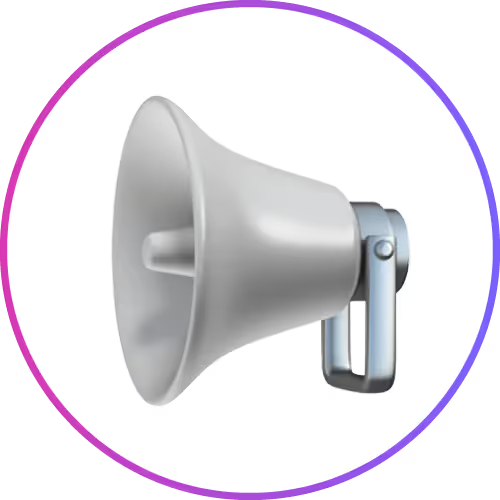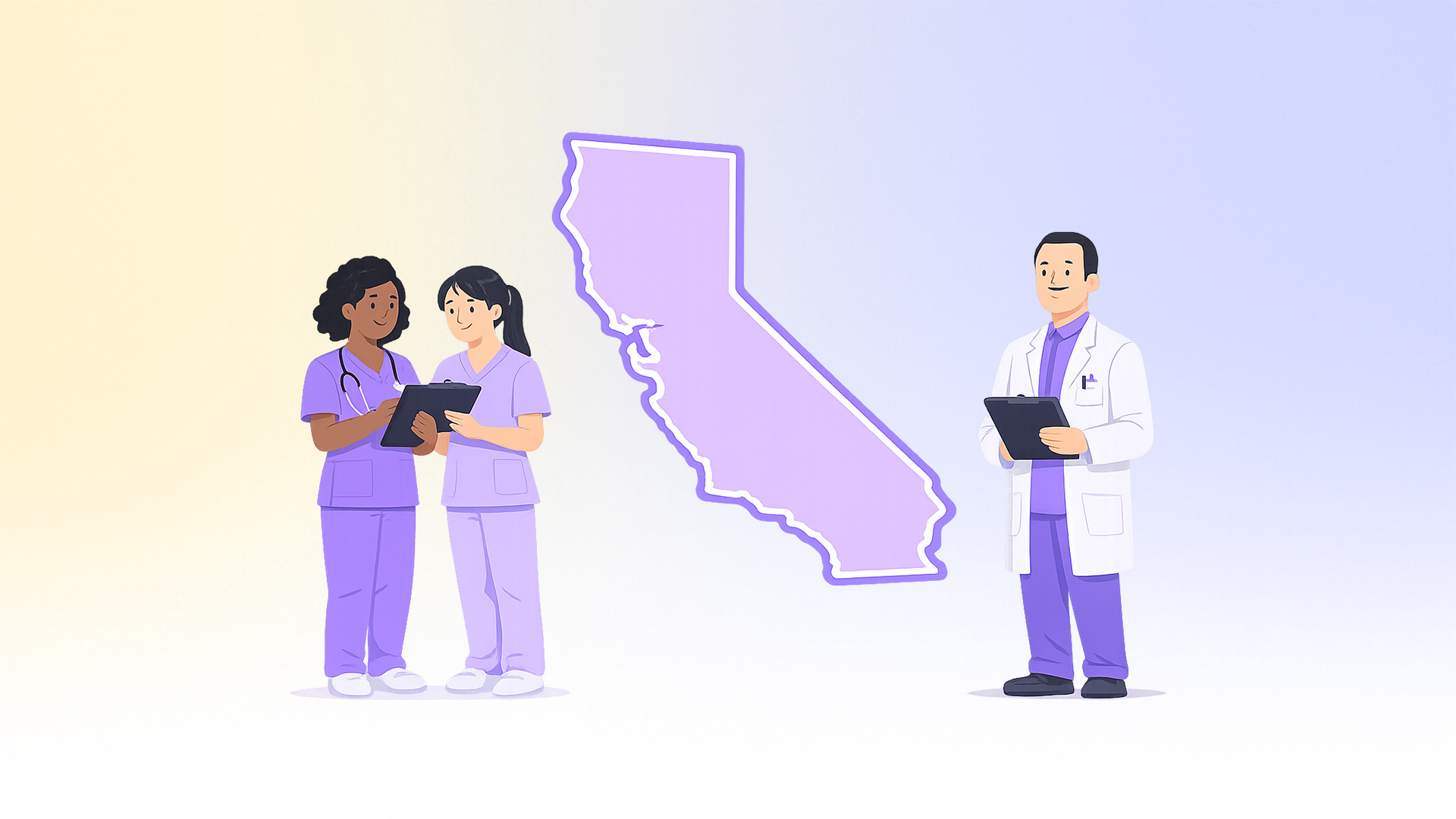If there’s one thing the pandemic taught us (besides how to survive on caffeine and sheer willpower), it’s that nurses and physicians work best as a team.
When the pressure was on, we had to communicate better, trust each other, and push past the usual tension to focus on what truly mattered—enhancing the patient's care. The roles and relationships among nurses, doctors, and other professionals within health care systems are crucial in these settings.
But here’s the thing: teamwork shouldn’t just be a crisis-mode mentality. A solid nurse-physician relationship makes daily work smoother, more efficient, and, dare we say, less stressful. Effective teamwork and communication can lead to improved patient outcomes.
The challenge? Personalities clash, communication breaks down, and, sometimes, a simple request for orders turns into a full-blown guessing game. So, how do you keep things professional, productive, and (relatively) drama-free?
It’s not just about being great at your job (though that helps!). It’s also about building trust, mastering communication, and handling difficult moments with grace.
Now, let’s get into five key tips to help you build and maintain strong relationships with physicians without losing your sanity.

1. Start by taking a look at yourself
It’s easy to blame a rocky professional relationship on the other person—after all, if things aren’t going smoothly, it must be their fault, right? Maybe they’re difficult, dismissive, or just impossible to read. But here’s the hard truth: sometimes, the first place we need to look is in the mirror.
In fact, surveyed nurses have highlighted that their perceptions of collaboration and teamwork significantly impact their professional identity and job satisfaction.
Nurse satisfaction is significantly influenced by personal responsibility and proactive behavior in the workplace. When nurses take charge of their roles and actively contribute to a positive work environment, it can lead to higher job satisfaction and better teamwork with physicians and pharmacists.
Before assuming that a physician is the problem, take a step back and ask yourself:
- Am I communicating clearly and effectively?
- Am I staying on top of my responsibilities?
- Could I be more proactive in my role?
- Am I making collaboration easier or harder?
Being a strong, reliable team player not only makes your job smoother but also builds trust with physicians and other healthcare providers. The more dependable you are, the fewer opportunities there are for misunderstandings or conflict.
When you consistently show up, take initiative, and handle your responsibilities with confidence, you set the tone for a professional relationship based on mutual respect—rather than frustration.

2. Remember that you are part of a team
One of the biggest sources of tension between NPs and physicians today comes from misunderstandings about each other’s roles.
Some physicians still see NPs as “mid-level providers,” while some NPs feel like they constantly have to prove themselves. This us vs. them mentality? It’s not helping anyone especially not the patients.
The truth is, healthcare is a team effort. The best outcomes happen when nurses and physicians work together not against each other. By viewing each other as integral parts of a team, healthcare professionals can significantly enhance the patient's care. Research backs this up: studies on interprofessional collaboration show that when doctors and nurses share responsibilities, communicate effectively, and make joint decisions, patient care improves across the board.
A strong healthcare team is built on:
- Deliberate information sharing where everyone needs to know what’s going on to provide seamless care.
- Shared accountability, it’s not just about doing your job; it’s about making sure the whole team succeeds.
- Mutual respect because you don’t have to agree on everything, but you do have to recognize and appreciate each other’s expertise.
- Balanced decision-making given that the best patient care plans come from collaborative decision-making, not a top-down approach.
Challenges within the interprofessional collaboration often stem from a perceived lack of respect for the nursing profession and the hierarchical nature of relationships. Countries with hierarchical medical structures struggle more with physician-nurse collaboration, while countries with complementary roles like the U.S. see better teamwork and attitudes toward shared responsibility.
As an NP, you can help bridge the gap by approaching every interaction with a teamwork mindset. Instead of getting caught up in competition, focus on the bigger picture: the patient.
And if you’re thinking, But what if the physician doesn’t see me as an equal?—well, remember point one: start with yourself. Show up as a reliable, competent, and collaborative team member, and you set the standard for a stronger working relationship.

3. Don't be afraid to speak up
For nurse practitioners, a strong relationship with a physician means knowing when and how to speak up. Earning professional respect doesn’t come from passively going along with everything; it comes from assertive, clear, and well-informed communication.
Effective nurse-physician collaboration is essential to ensure quality care and enhance the patient's care.
Historically, nurse-physician relationships followed a strict hierarchy—physicians gave orders, and nurses followed them. But modern healthcare requires collaboration, not compliance. Studies show that when nurses and physicians actively coordinate care, share information, and respect each other’s expertise, patient outcomes improve. That means your voice matters.
But here’s the key: assertiveness isn’t aggression. Speaking your mind isn’t about proving a point, starting unnecessary debates, or putting yourself above others. It’s about advocating for patients, contributing your knowledge, and ensuring the best clinical decisions are made.
Effective nurse-physician collaboration is essential for patient advocacy, ensuring that the patient’s needs and safety are prioritized through clear communication and a team-oriented approach.
There will be times when the best interests of the patient rely on you speaking up. Maybe you see a medication interaction that was overlooked, or you recognize early signs of deterioration before anyone else. In these moments, you’ll need to:
- Stay calm and respectful: Emotions can run high in healthcare, but clarity and professionalism always carry more weight.
- State the facts: Back your concerns with clinical reasoning. The more solid your evidence, the more effective your message.
- Be confident in your expertise: Nurse practitioners are highly trained professionals. Trust in your knowledge, and don’t downplay your insights.
Of course, not every situation will go your way. Sometimes, speaking up won’t immediately get the result you want. But research shows that most physicians value nurses who take initiative. The best healthcare teams recognize that patient care isn’t about status—it’s about knowledge and collaboration.
Johns Hopkins University’s research emphasizes that power dynamics in healthcare can sometimes silence critical voices, leading to missed opportunities for better patient outcomes. Breaking that cycle starts with cultivating mutual respect and when every team member, regardless of title, is seen as “worth listening to,” collaboration thrives.
Don’t forget remember, conflict is sometimes inevitable in interprofessional work but how you manage it makes all the difference. The more you assert your role with professionalism and expertise, the more you shift the conversation toward true, respectful teamwork.

4. As an NP, you already have empathy. Use it!
Empathy comes naturally when caring for patients because it’s what makes nurses stand out in healthcare. But what if you extended that same empathy to the physicians you work with?
By fostering a sense of shared responsibility, both nurses and physicians can work together more effectively to enhance the patient's care.
It’s easy to forget that physicians are under immense pressure too. High patient loads, administrative burdens, and clinical decision-making weigh heavily on them.
Interestingly, studies suggest that female physicians may have more positive attitudes toward collaboration compared to their male counterparts. This dynamic can influence interprofessional relationships and highlights the importance of understanding gender roles in the medical profession.
When tensions rise, it’s often not personal it’s stress talking. Putting yourself in their shoes can shift your perspective and strengthen your working relationship.
Johns Hopkins University research highlights the power of humanistic respect, a fundamental belief in the inherent value of others as human beings. Unlike professional respect, which is earned through skill and expertise, humanistic respect is expected. It’s about treating everyone, regardless of role, with dignity, fairness, and civility.
This kind of mutual respect can prevent conflict before it starts. When physicians feel valued as people (not just as decision-makers), they are more likely to engage in positive, productive interactions with NPs.
Empathy also enhances communication skills. When a conflict arises, seeing things from the physician’s perspective can help you:
- Choose the right words: Understanding their stressors can help you phrase concerns in a way that resonates.
- Improve collaboration: A little empathy can turn a tense exchange into a constructive conversation.
- Strengthen professional trust: Physicians who feel respected and understood are more likely to seek your input and trust your judgment.
At the end of the day, patient care is a team effort. Speaking up, being assertive, and showing empathy aren’t separate skills, they work together to build strong, professional relationships with physicians.
When you demonstrate both professional competence and humanistic respect, you create an environment where your voice is valued, and your expertise is recognized.

5. Remember to take care of yourself
Some challenges in the workplace can’t be solved with better communication or teamwork alone. And let’s be honest some physician-NP relationships will never be perfect, no matter how skilled you are at collaboration.
That’s why self-care it’s essential. If a difficult professional dynamic is causing you stress, the worst thing you can do is carry that frustration home with you.
Leaving work at work is easier said than done, but it’s a necessary skill for both your mental health and your ability to provide quality patient care. A positive work environment not only benefits healthcare professionals but also significantly enhances the patient's care.
Research shows that respectful, collaborative work environments lead to lower stress levels and higher job satisfaction. When nurses feel valued, whether during bedside rounds or in decision-making discussions, they report better overall experiences. Effective teamwork among physicians, nurses, and administrators is crucial for improving patient safety, as it can eliminate barriers that compromise care.
But the reality is, not every physician will be receptive, and not every workplace will foster a culture of mutual respect.
So what can you do?
- Set boundaries: Work issues should stay at work. Your free time is for restoring your energy, not replaying workplace conflicts in your head.
- Prioritize your well-being: Take breaks, stay active, and lean on your support system. The better you care for yourself, the better you can care for others.
- Recognize what’s in your control: You can’t change how someone else behaves, but you can control your reactions and protect your peace of mind.
None of this means you should give up on improving professional relationships. It just means that tackling these challenges requires the right mindset—and that starts with taking care of yourself.
At the end of the day, a burned-out NP helps no one. Your patients need you at your best, and that means prioritizing both your professional growth and your personal well-being.
Bonus tip: Define roles clearly & collaborate for patient safety
In the fast-paced world of healthcare, clarity and teamwork are a must have. But one of the biggest barriers to effective collaboration between NPs and physicians is role confusion.
When responsibilities are unclear, tasks get duplicated, critical details slip through the cracks, and patient safety is compromised. Miscommunication in healthcare causes both frustration and delays in treatment, medication errors, and preventable harm.
The solution? Establish clear roles and work together with a shared goal: delivering the safest, highest-quality care possible.
Start by having open discussions about responsibilities. Where do your roles complement each other? Where do they overlap? Define who takes the lead in different areas and create structured communication channels to ensure no critical information gets lost.
For example, if both you and the physician are involved in patient education, decide who covers which aspects to avoid redundancy and ensure patients receive clear, consistent information.
This is especially crucial in high-risk areas like:
- Medication Safety: Double-checking meds, doses, and potential interactions to prevent errors.
- Infection Control: Following evidence-based protocols to reduce hospital-acquired infections.
- Patient Monitoring: Catching early signs of deterioration and responding as a team.
- Care Transitions: Ensuring smooth handoffs between providers so nothing falls through the cracks.
Patient safety depends on strong collaboration. Every moment of teamwork can mean the difference between a smooth recovery and a serious complication.
At the end of the day knowing exactly where you fit in the bigger picture allows you to work at your highest level, while collaborating seamlessly with physicians to create a safer, more efficient, and patient-centered healthcare environment.
Stronger relationships between Nurse practitioners and Doctors = Stronger care
Building great professional relationships with physicians isn’t about being perfect, it’s about being intentional. It’s about recognizing that, just like NPs, physicians have their own pressures, challenges, and blind spots.
It’s about balancing confidence with collaboration, speaking up while listening, and advocating for both your patients and yourself. Effective communication and collaboration are crucial in the nurse doctor relationship to minimize conflicts and enhance patient care. By understanding the evolving roles and differing perspectives of nurses and doctors, we can better navigate the complexities of patient's care.
By working together as true partners, nurses and physicians can significantly enhance the patient’s care.
Not every interaction will be easy, and not every physician will be receptive. But that doesn’t mean your voice doesn’t matter.
By fostering open communication, prioritizing teamwork, asserting your expertise, leading with empathy, and protecting your own well-being, you set the foundation for stronger, healthier, and more effective working relationships.
And here’s the real takeaway: everything comes down to making work easier and offering top-notch patient care. When NPs and physicians work together as true partners, patients benefit. Outcomes improve. Stress decreases. Job satisfaction rises.
So take the first step. Start with yourself, embrace teamwork, speak up with confidence, lead with empathy, and never neglect your own well-being.
The best professional relationships aren’t just built—they’re nurtured. And in a field where every decision matters, a stronger, more collaborative healthcare team is always worth the effort.
Follow NPHub on social media:
Facebook: https://www.facebook.com/NPHubOfficial/
Instagram: https://www.instagram.com/nphub_
Find a preceptor who cares with NPHub
Book a rotation.webp)








.webp)


.webp)



%20(3)%20(2).svg)
.webp)